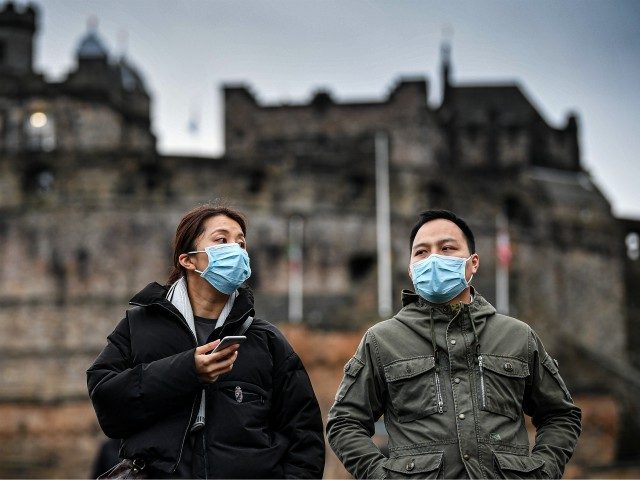Former international trade secretary Dr Liam Fox has said that the worldwide spread of the coronavirus and resulting disruptions to supply chains have revealed the fragility of the global economy.
The prime minister has chaired an emergency meeting of Cobra, the government’s crises committee, on Monday after the number of confirmed infected people in the UK spiked to 36 after 13 new cases were confirmed on Sunday. Public Health England has said that the UK must prepare for “more widespread transmission” of the China-origin virus, the increased transmission of which is now “highly likely”.
While the British government is discussing how, as a nation, it tries to contain the deadly outbreak, it may be woefully unprepared to deal with mass disruption to global supply chains — part and parcel of globalisation — and over which it has relatively little control.
A medical doctor, currently writing a book on pandemics, and a former government minister specialising in global trade, Dr Fox told Sky News this morning that the coronavirus is “already having a big impact on trade”.
“I think what it is showing us is that while the ‘just in time’ supply chain in the global economy may provide us with efficiency in the global economy, it doesn’t provide us with resilience in the global economy. I think that’s something we will need to look at after because it’s clear that now the concept of ‘over there’ does not exist in a global economy, and a disruption in one part will very quickly become a disruption elsewhere,” the former international trade minister continued.
Asked whether that means the UK should start doing more to fill in the gaps of British supply chains, specifically in agriculture and production, Dr Fox said: “There’s an economic case for import substitution — that’s where we do more ourselves — but I think the trend to run down stocks and run down warehousing may need to be looked at again to increase resilience should we face something like this in the future, which is likely, because pandemics are the norm in human history, not the exception.”
Political advisor Nick Timothy also raised the “risks associated with globalisation” in a piece for The Telegraph, writing that “the interconnected nature of the world economy means we are more exposed than ever to decisions made by foreign governments, financiers and business leaders.”
Both Dr Fox and Mr Timothy had pointed out that global airline travel made it more difficult to control the coronavirus, with the latter warning that “its spread is likely to be even faster, thanks to Beijing’s initial response, and the incompetence and secrecy of states such as Iran”.
“British researchers are playing their part in the global effort to find a coronavirus vaccine, but Britain has no vaccine manufacturing plants,” Mr Timothy observed, adding that, therefore, if a vaccine were discovered, the UK would “need to wait in the queue to get it”.
“As a country that prides itself on its adherence to international free trade, the UK has long been content for its companies to take their place in transnational supply chains. But with coronavirus, as with our new 5G telecommunications system — which ministers insist we can only build with the help of the Chinese company, Huawei — we may come to rue the lack of a national, or at least Western, capability to produce what we need,” Timothy said.
In response to cases across Europe — notably in Italy — the European Union has increased the risk of coronavirus to member-states to “moderate to high”. The British government has said that if the outbreak worsens, it may ask recently-retired nurses and doctors to return to work, recommend the closure of schools, and where possible, urge employees to work from home. The government’s health minister, Matt Hancock, also would not rule out banning large gatherings over the Chinese virus, which France is already doing by prohibiting gatherings of more than 5,000 people.
While Mr Hancock tried to downplay the threat on Sunday before the number of new cases had been confirmed — urging Britons to keep washing their hands “and taking the precautions that are set out”–Professor Paul Cosford, PHE’s emeritus medical director, told Sky News on Monday that there is a “limit” to what can people can do to stop the spread of infection.
Where the government could exert autonomy is to stop all flights from China; however the government has not, as yet, considered abandoning the globalised open borders mindset. Mr Timothy observed that “the first stage of the Department of Health’s strategy is ‘containment’, yet direct flights from China to Britain were allowed to continue at the height of the contagion.”

COMMENTS
Please let us know if you're having issues with commenting.